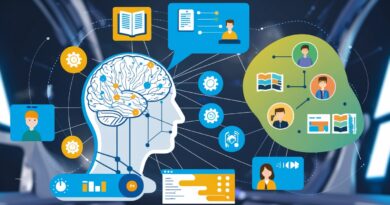The Power of Learning Management Systems in Modern Education
Introduction
The demand for effective digital learning solutions has grown significantly in education and corporate training environments. A Learning Management System (LMS) provides the foundation for delivering, managing, and tracking learning experiences. In this article, we explore the many ways LMS platforms are transforming education, enhancing student engagement, and streamlining administrative processes.
What is a Learning Management System?
A Learning Management System is software that organizes and delivers educational content while monitoring learner progress. It allows institutions to manage online courses, assessments, and collaborative activities from a single, centralized platform, making it a cornerstone of digital learning strategies.
Key Features of a Learning Management System
- Course Creation and Delivery: Enables educators to design interactive courses with multimedia content.
- Assessment Management: Supports quizzes, tests, and automated grading.
- Student Progress Tracking: Monitors performance and provides detailed reports.
- Collaboration Tools: Encourages interaction through discussion boards and group projects.
- Mobile Access: Offers learning flexibility with mobile-friendly interfaces.
- Certification and Badging: Issues certificates and badges to recognize achievements.
Benefits of Using a Learning Management System
1. Increased Accessibility
Learners can access materials from any location, promoting remote and flexible education.
2. Enhanced Efficiency
Automated administrative tasks, such as attendance tracking and grading, reduce manual work.
3. Personalized Learning Paths
Tailors learning experiences to individual needs, boosting engagement and retention.
4. Cost Savings
Reduces the need for physical materials and in-person training sessions.
5. Data-Driven Insights
Advanced analytics offer insights into learner behavior and course effectiveness.
Applications of Learning Management Systems
For K-12 Schools
- Digital Homework Submission: Students can upload assignments for teachers to review online.
- Parent-Teacher Communication: Keeps parents informed about student progress and upcoming events.
For Higher Education
- Blended Learning Support: Combines traditional classroom teaching with online content delivery.
- Research Collaboration Tools: Facilitates joint research projects with shared resources.
For Corporate Training
- Onboarding Programs: Standardizes training for new employees.
- Ongoing Professional Development: Provides access to skill-building resources and certifications.
How to Choose the Right LMS
- User Experience: A simple, intuitive interface promotes better adoption and usage.
- Customization Capabilities: Tailor the system to match institutional branding and unique needs.
- Security Features: Protect sensitive data with strong encryption and access controls.
- Integration Options: Ensure the LMS can connect with existing systems, such as CRMs or ERPs.
- Cloud-Based vs. On-Premises: Consider flexibility, maintenance, and accessibility needs.
Emerging Trends in Learning Management Systems
- Artificial Intelligence: Personalized learning recommendations based on individual progress.
- Gamification Elements: Enhances engagement with leaderboards, rewards, and challenges.
- Microlearning: Short, focused lessons to boost knowledge retention.
- Immersive Learning: Virtual and augmented reality tools for hands-on experiences.
Why Every Institution Needs a Learning Management System
In today’s fast-paced world, manual learning processes are no longer sustainable. A Learning Management System offers a comprehensive solution to enhance educational delivery, reduce administrative burdens, and create better learning outcomes. It empowers organizations to remain competitive by providing dynamic, scalable, and efficient learning solutions.
Conclusion
A Learning Management System is an essential tool for modern education and professional development. From enhancing accessibility to delivering personalized learning experiences, LMS platforms make education more impactful. Institutions that adopt these systems position themselves for greater success, innovation, and growth.



